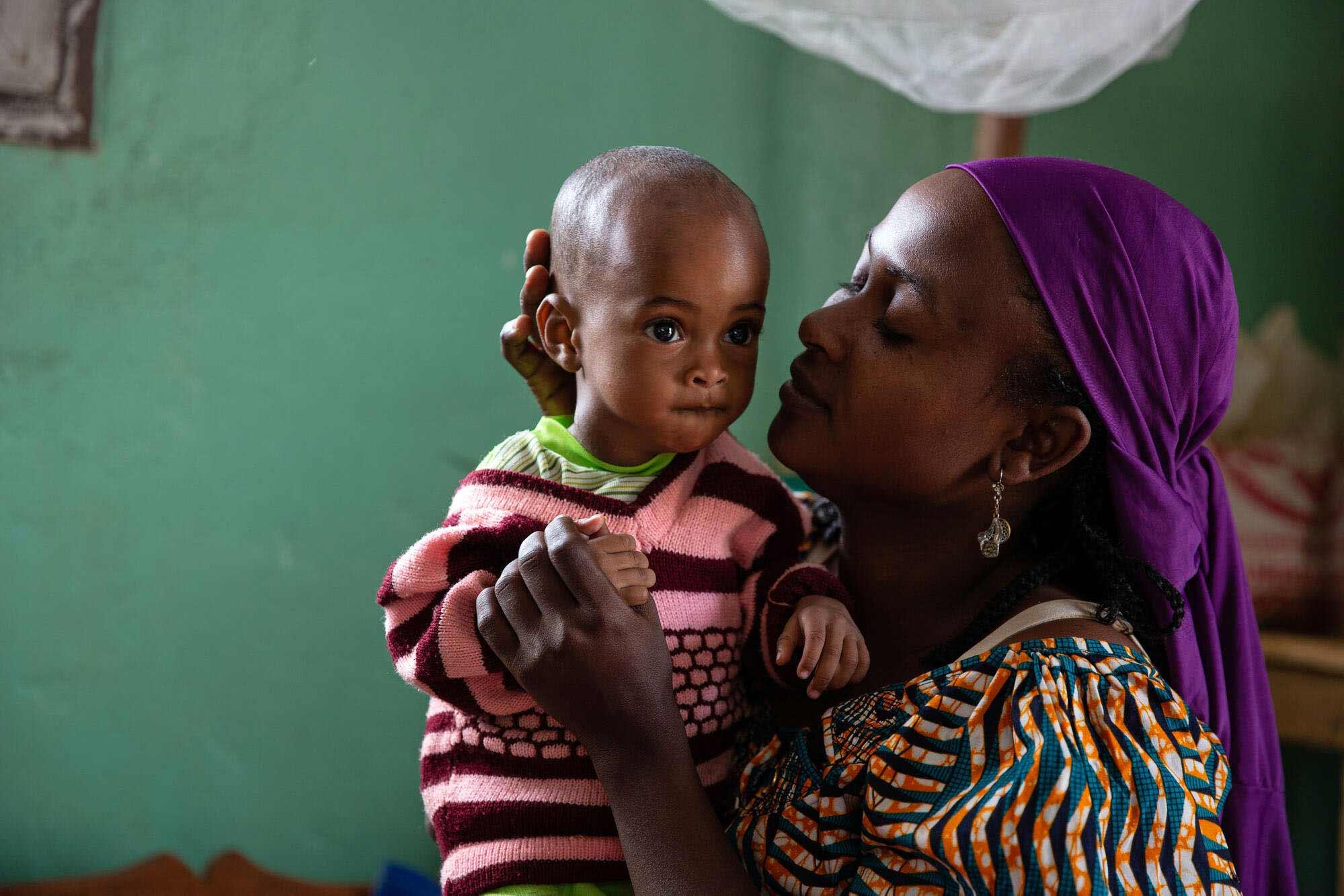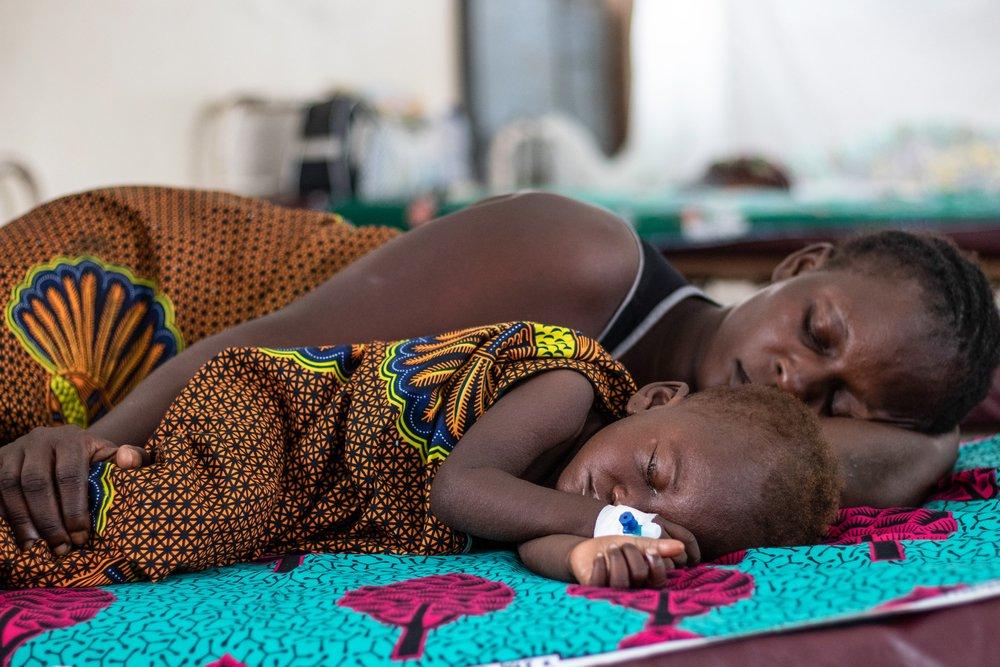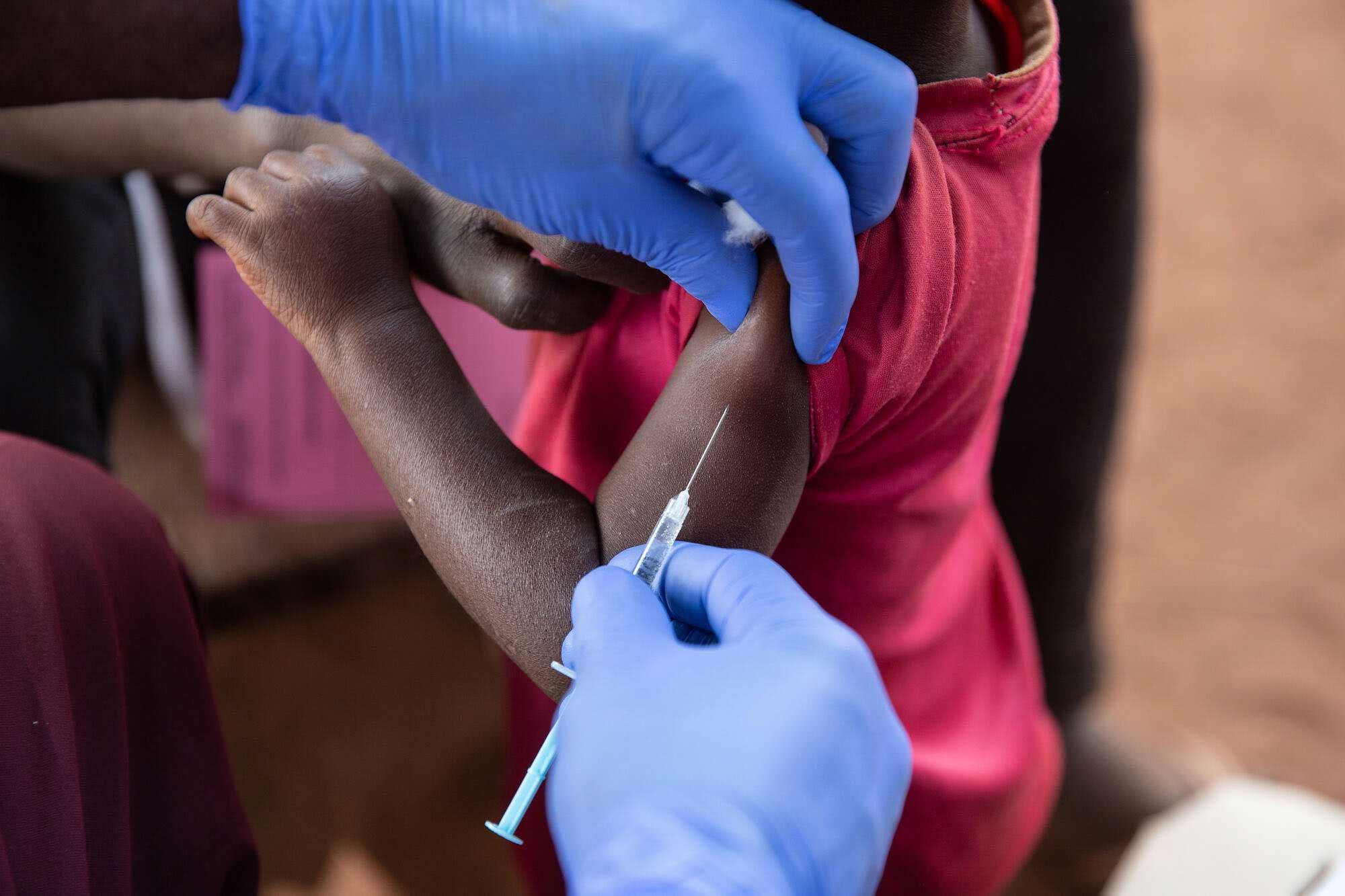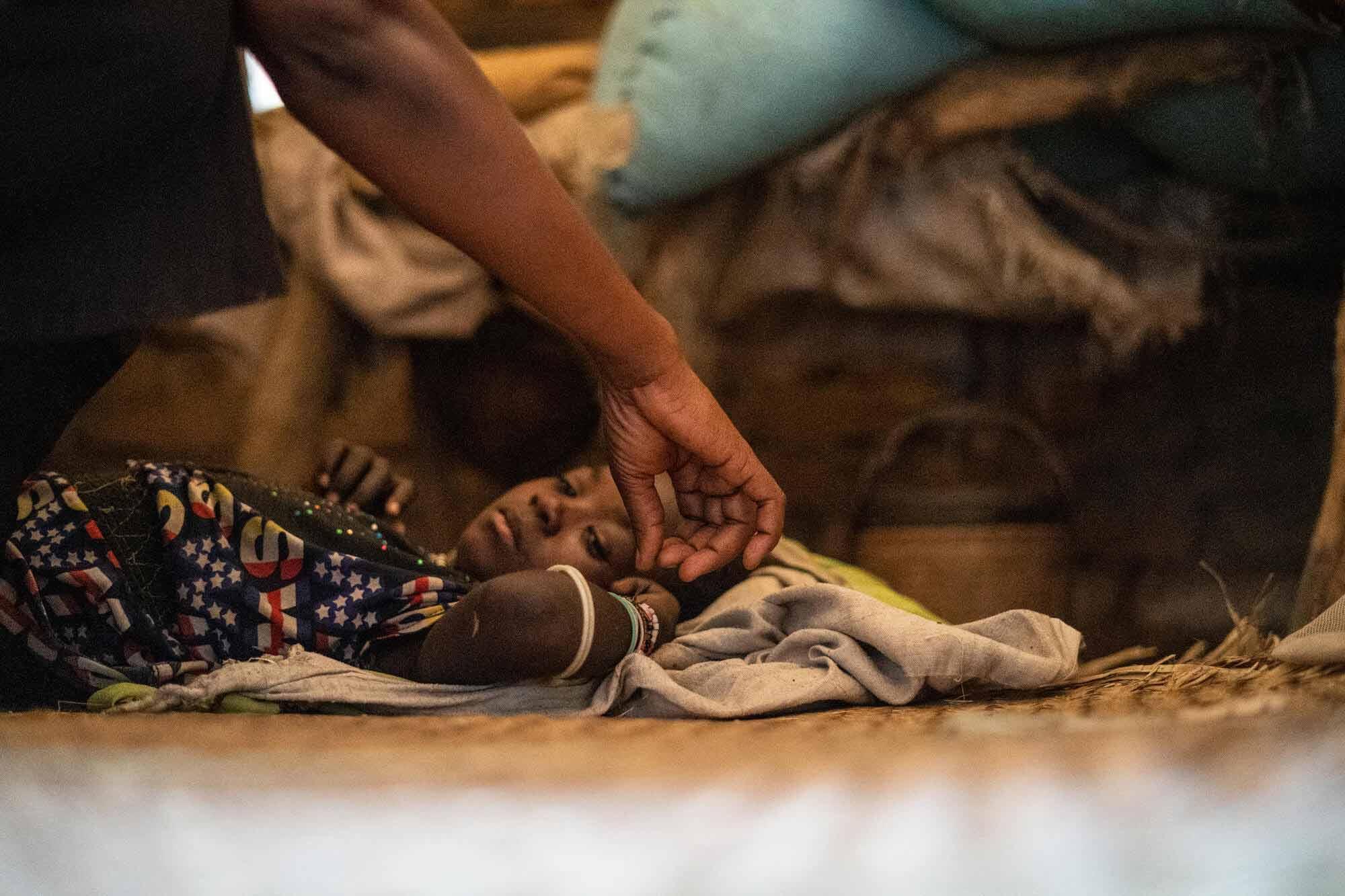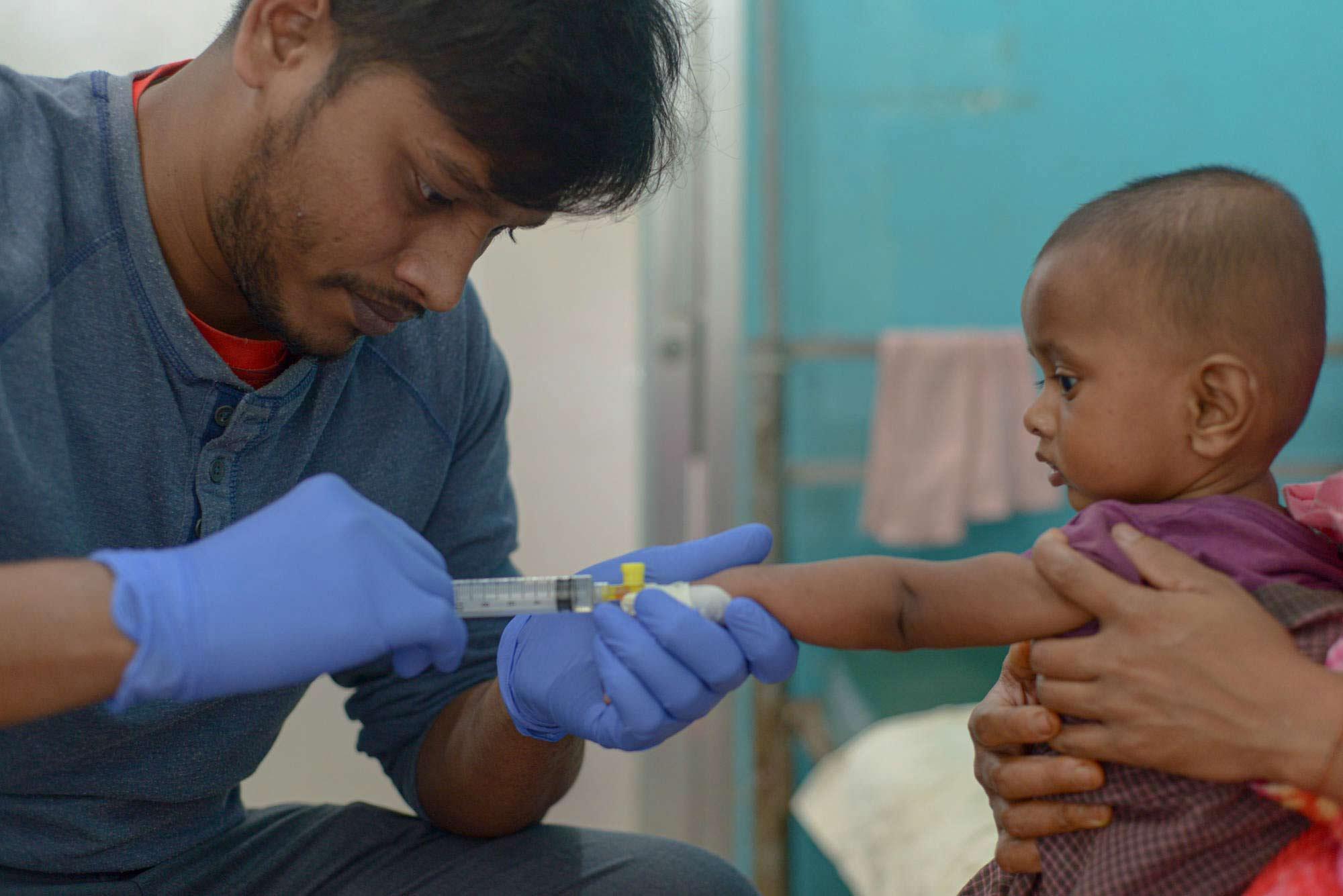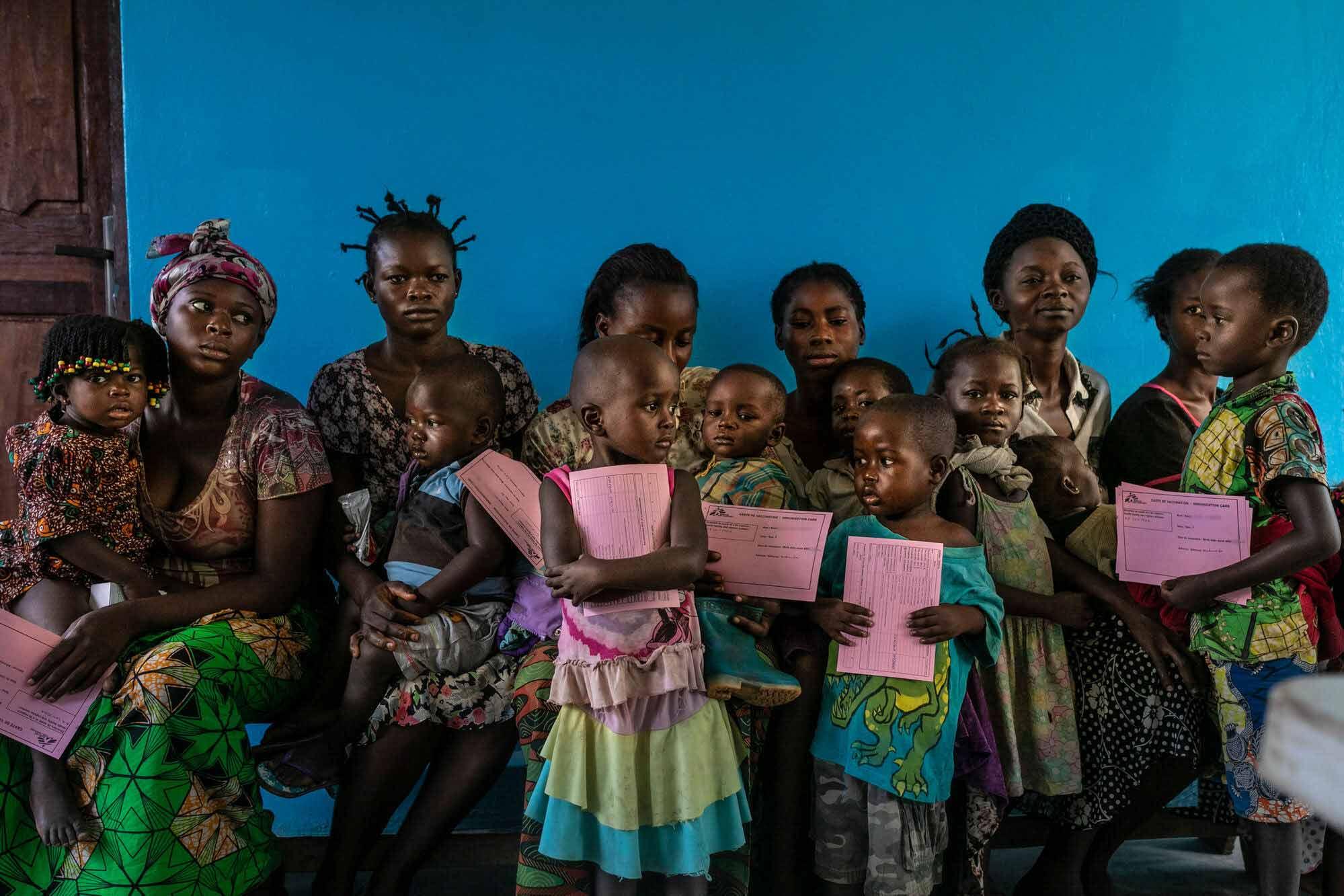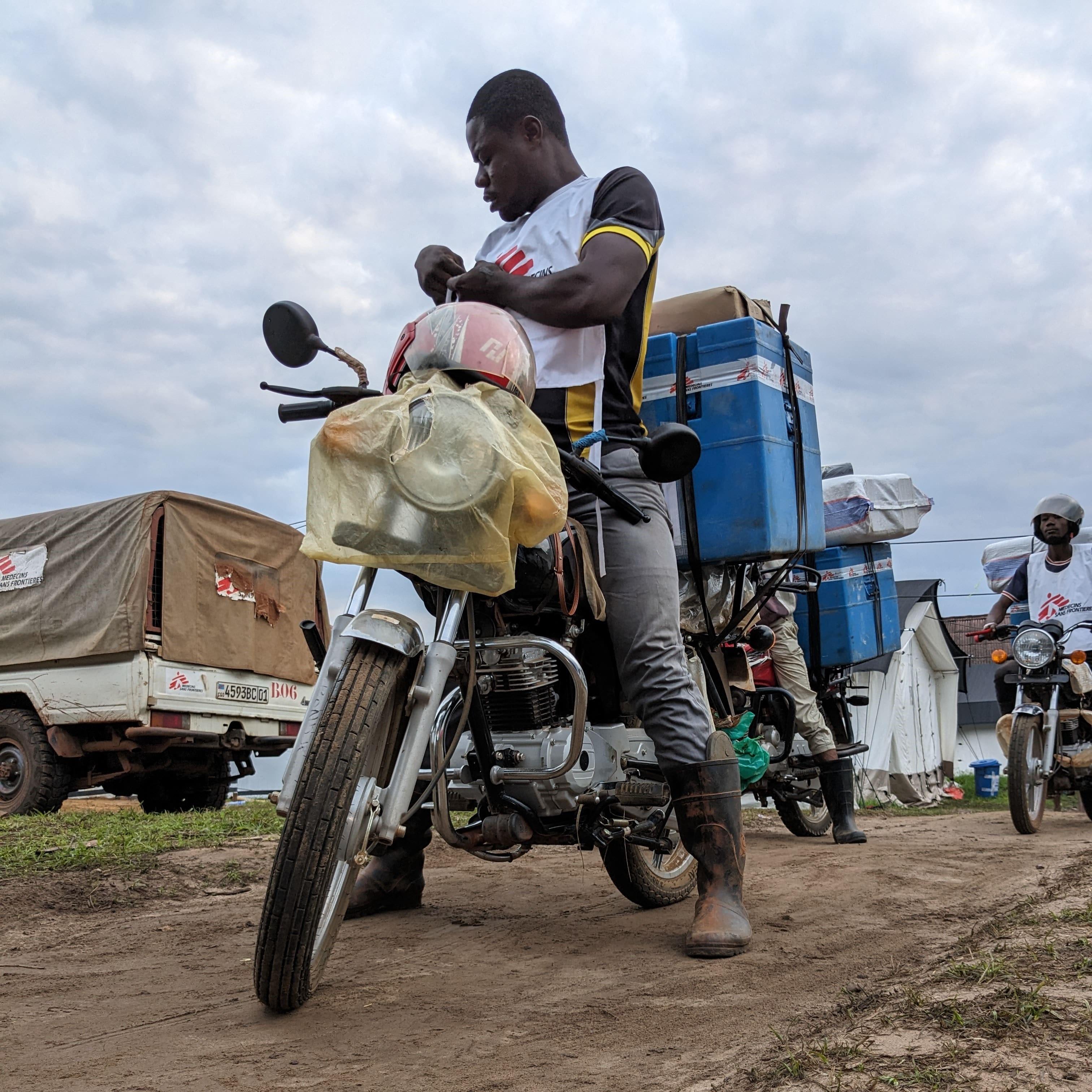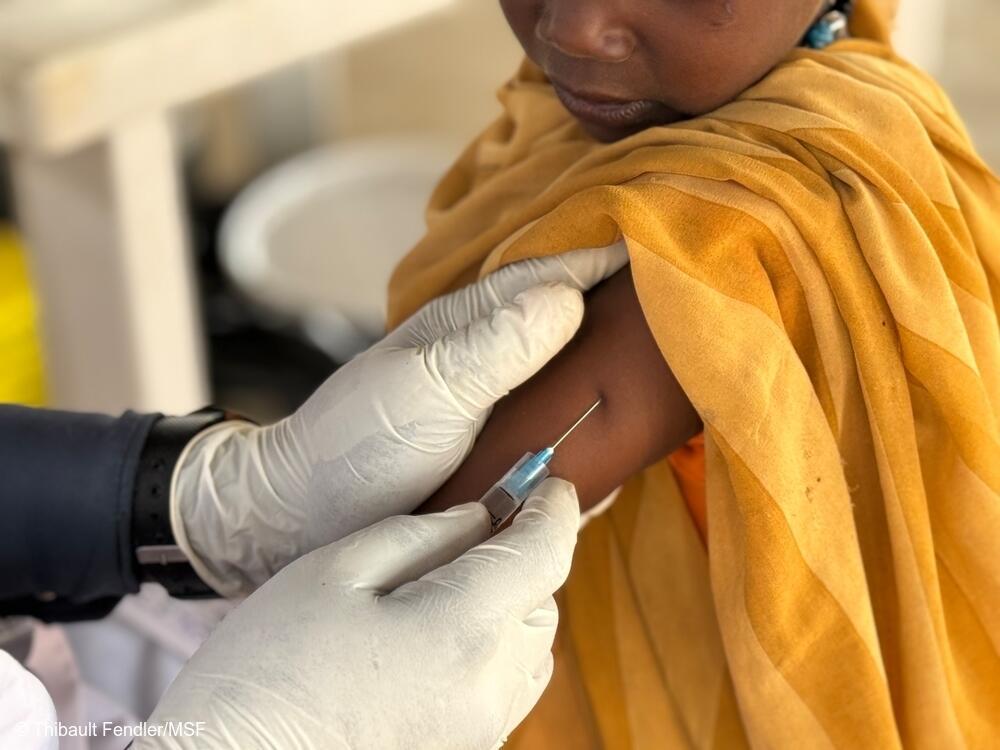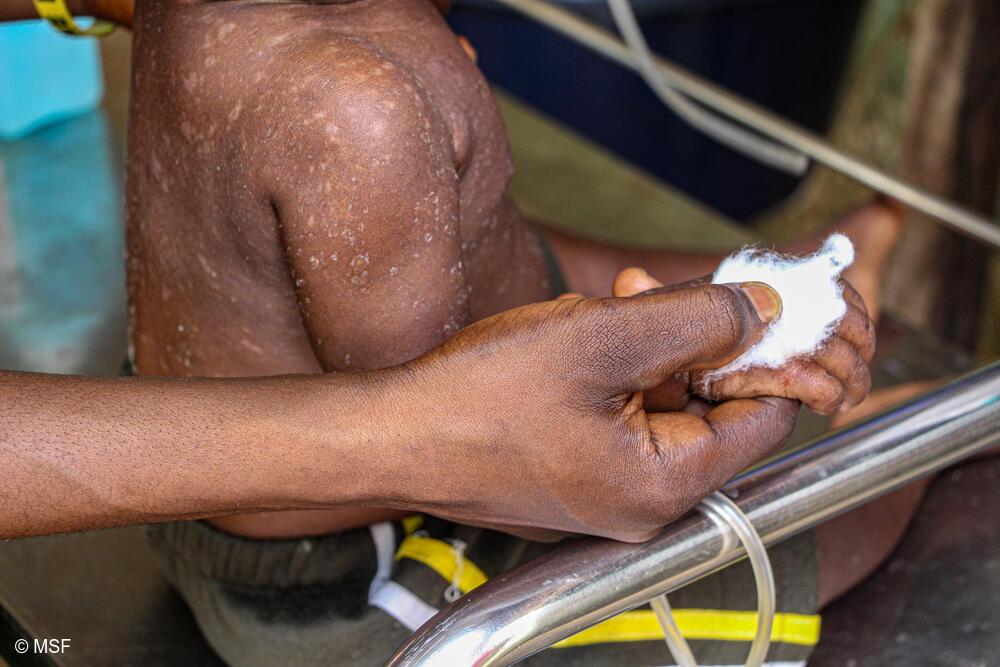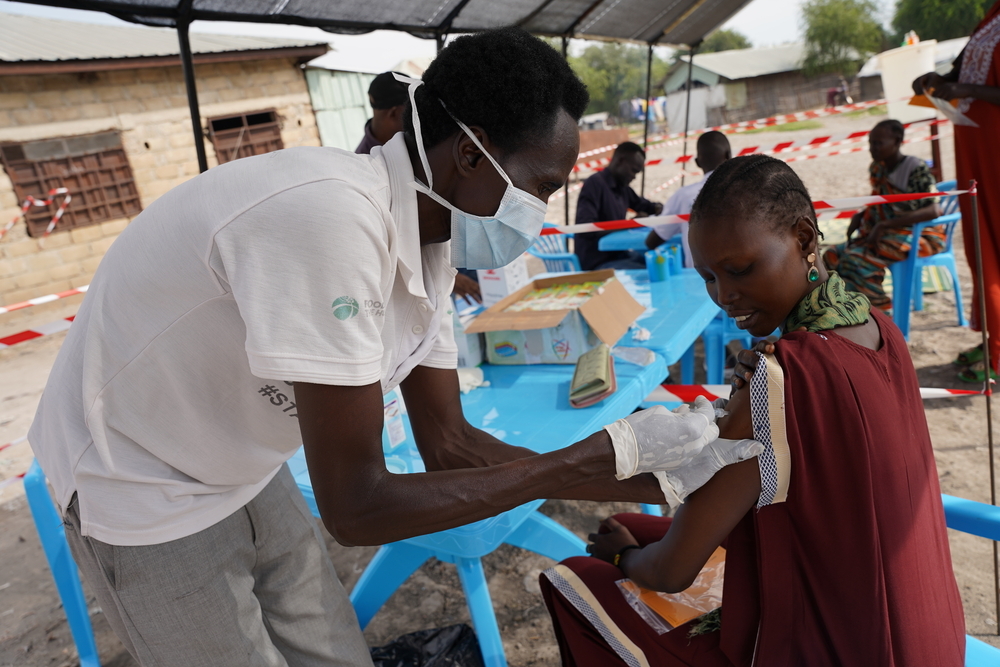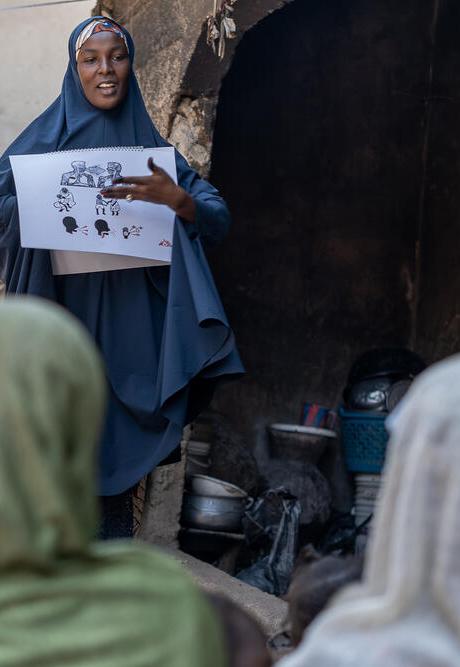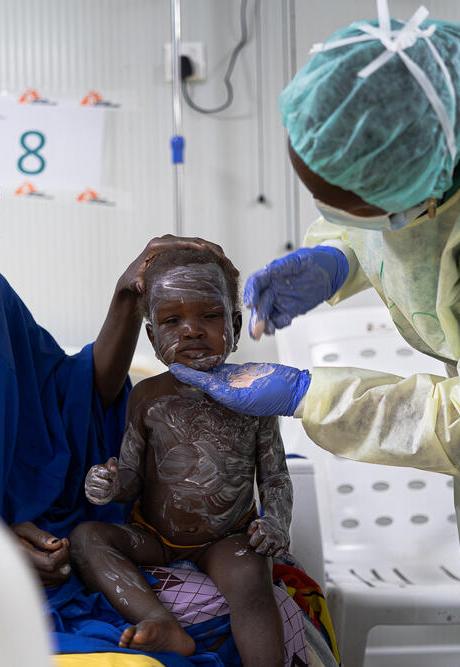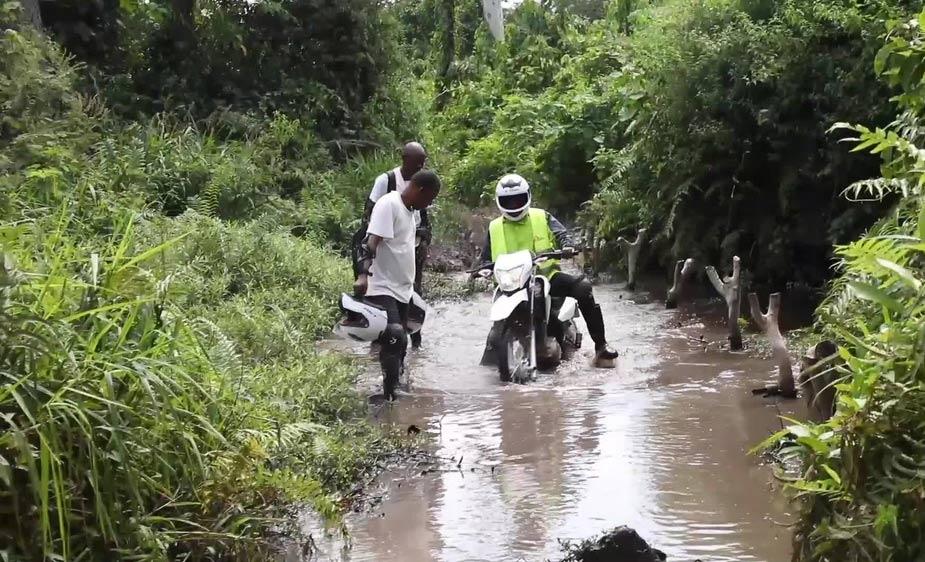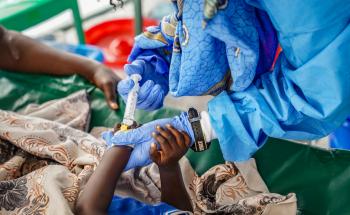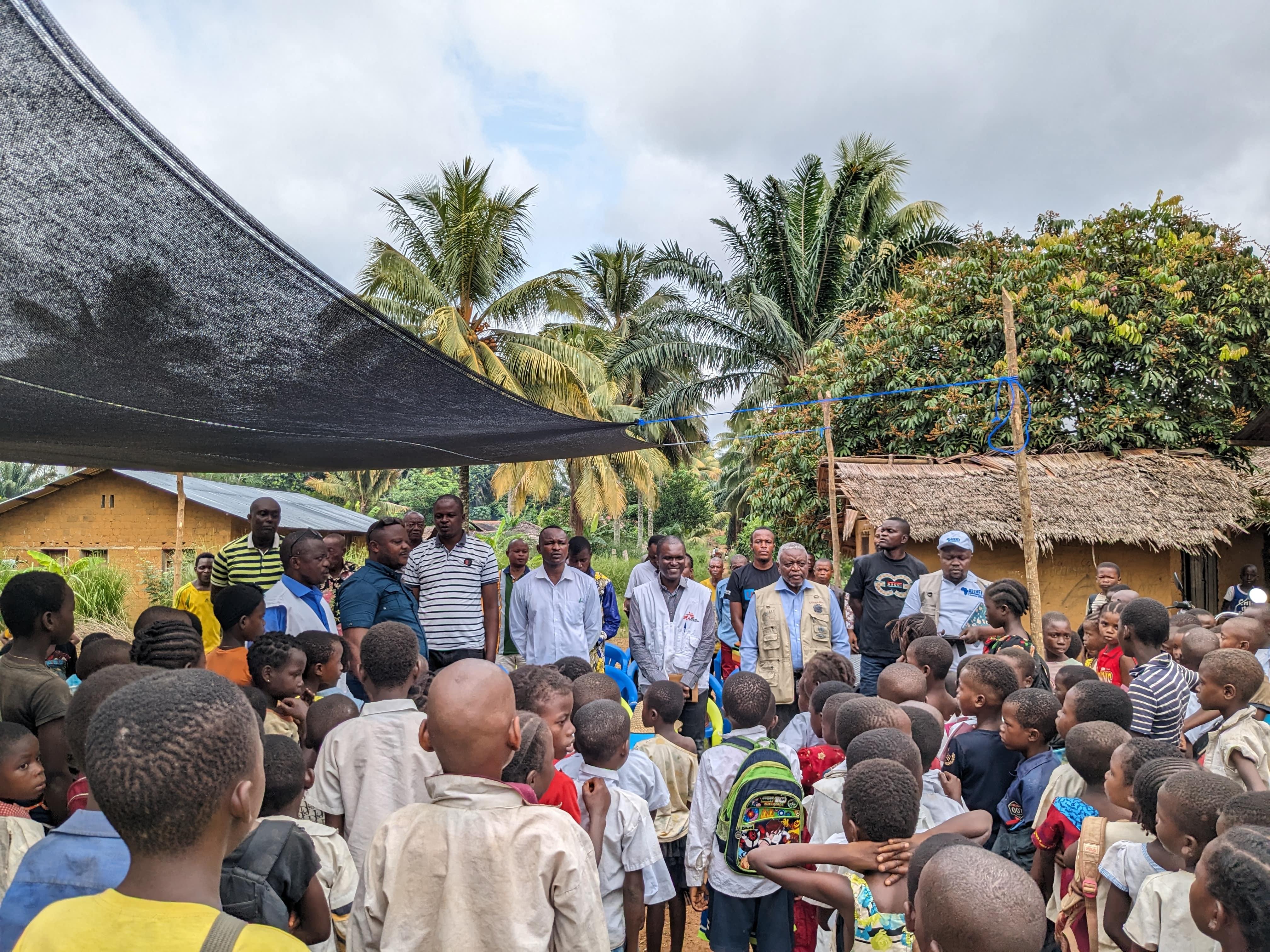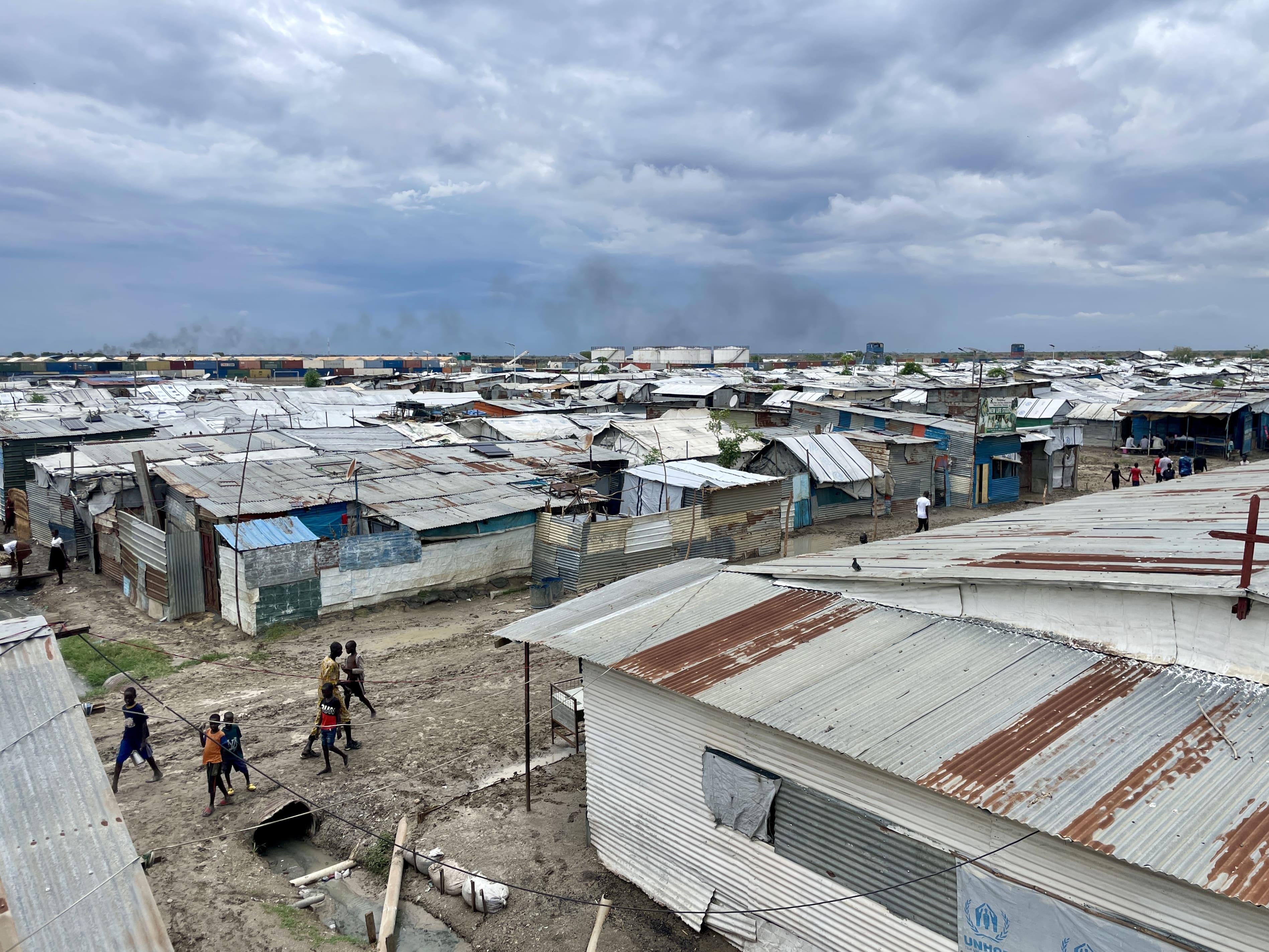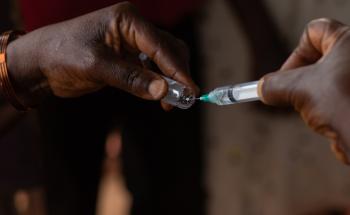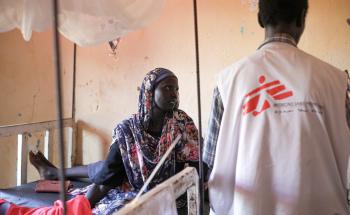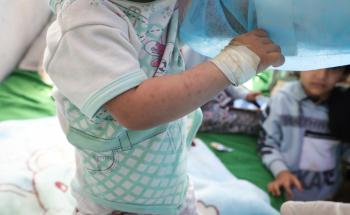Once there is a single case of measles in refugee settings, an outbreak is declared, and our teams swing into action to prepare a vaccination campaign. To keep vaccines cold for up to a day, often in sweltering temperatures, logistics workers fill coolers with ice packs and load them onto trucks, along with all the supplies necessary for vaccinating thousands of children each day. While community health workers spread the word with local leaders, nurses set up vaccination stations under trees or near schools. Any children already sick will be given treatment and, if necessary, transferred to a hospital. In the past 10 years, MSF has carried out over 30 vaccination campaigns, the majority of them in Democratic Republic of Congo, Central African Republic, Sudan, Niger, Chad, and Nigeria—many of them among populations displaced by conflict.
Starting a campaign before the first case of measles dramatically reduces the chances of an epidemic. Part of MSF’s measles response is therefore to conduct mass vaccination campaigns in areas where coverage is low and chances of an outbreak are high. Alongside countries with chronically low coverage are conflict settings like Syria, where war has destroyed a once well-functioning health systems. This has caused vaccination coverage rates to plummet and triggered several outbreaks, including measles and even diseases like polio that had become almost unknown in Syria. A vaccine coverage survey done by MSF in Kobane (northern Syria) in June 2015 showed that only 17 percent of children were fully vaccinated. For this reason we have supported both routine immunization and vaccination campaigns in Syria since we began working there after war broke out in 2011.
Though children should be fully vaccinated against measles by the time they're 12 months old, this often doesn’t happen in fragile contexts where government vaccination programs don’t reach everyone or have been disrupted. This makes “catch-up” vaccination important in many settings. For example, in refugee camps we often see that even older children get measles. In response, we may expand our vaccination activities to include children up to age 15.

